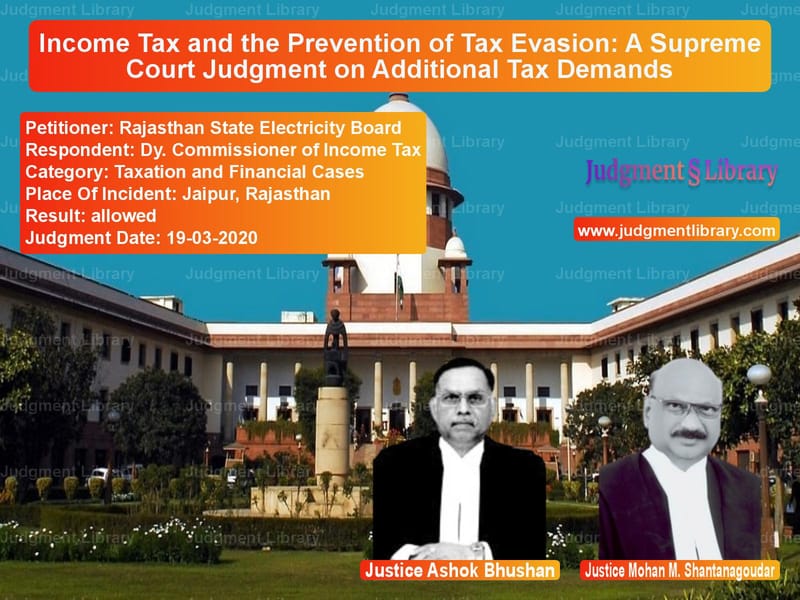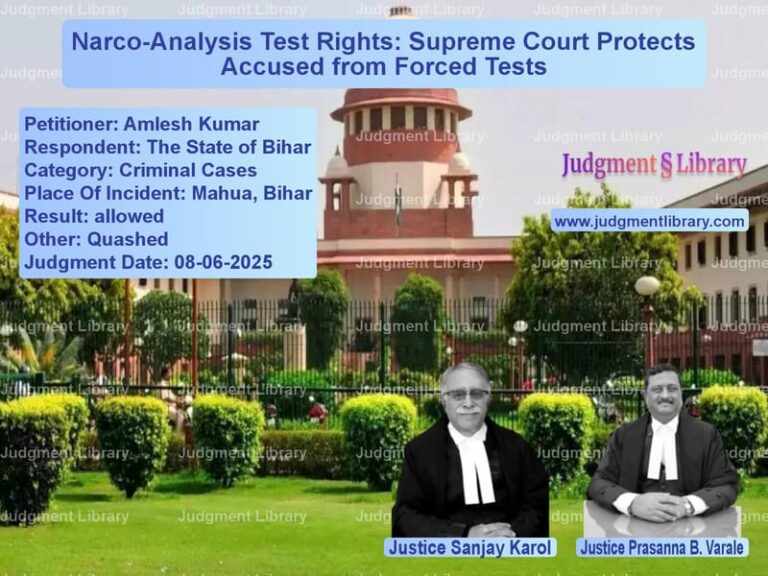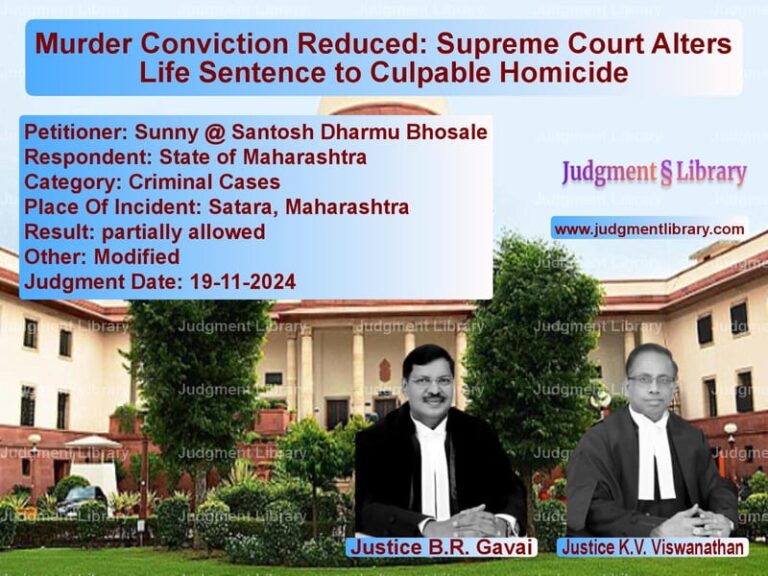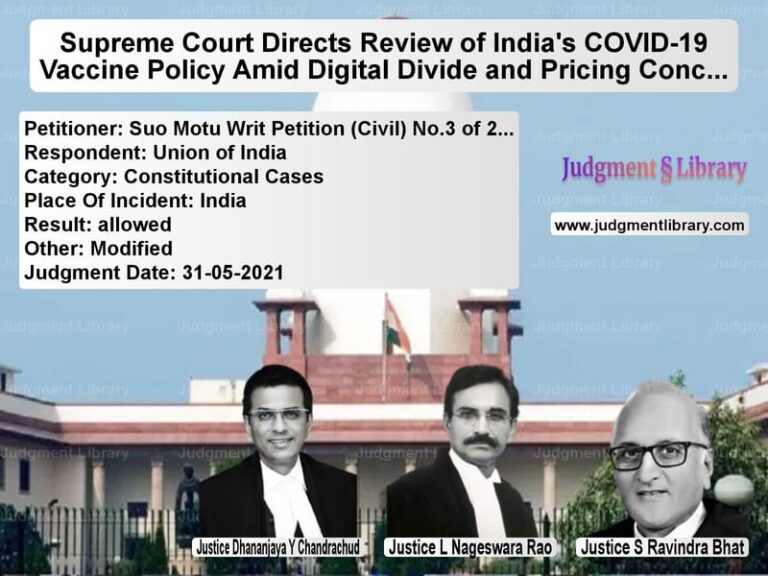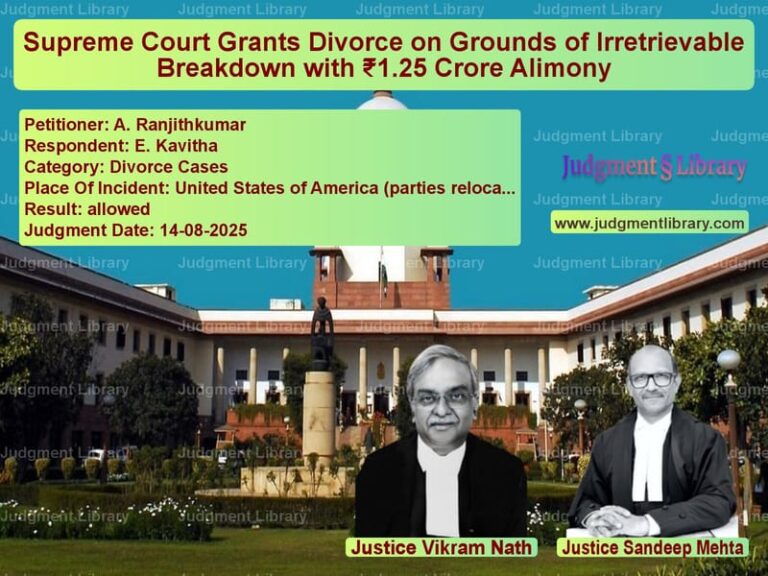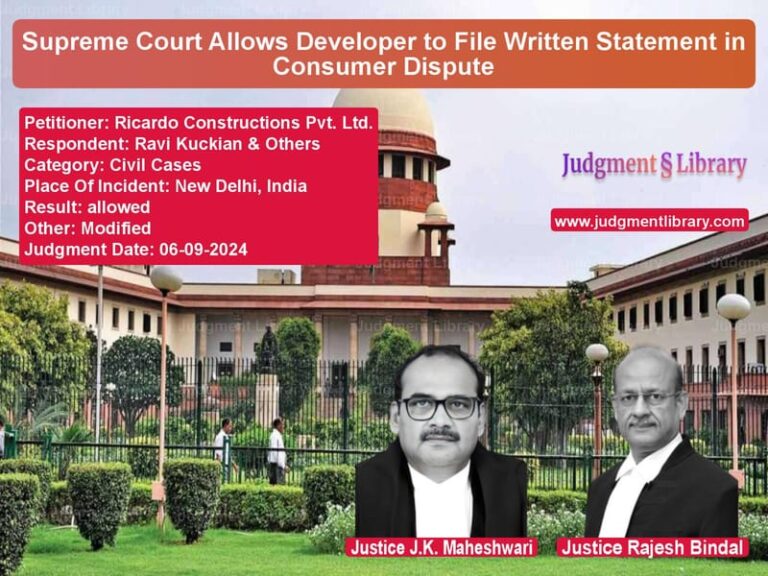Income Tax and the Prevention of Tax Evasion: A Supreme Court Judgment on Additional Tax Demands
The Supreme Court of India, in its ruling on Rajasthan State Electricity Board v. The Dy. Commissioner of Income Tax, addressed the application of Section 143(1-A) of the Income Tax Act, 1961, which relates to the demand for additional tax in cases of adjustments to declared income. The case involved a dispute over the demand of additional tax from the Rajasthan State Electricity Board (RSEB) after an error in depreciation claims on their income tax return for the assessment year 1991-92. The judgment examines the application of this provision in circumstances where the error was found to be a bona fide mistake, and whether the imposition of additional tax was justified under these circumstances.
The core issue was whether the RSEB, in filing a return showing a loss but with a claim for 100% depreciation instead of 75%, was liable for additional tax under Section 143(1-A), considering it was a genuine error and not an attempt to evade taxes. The Court’s decision clarified the application of this provision and its purpose in preventing tax evasion, while also considering the issue of bona fide errors.
Background of the Case
In the financial year 1991-92, the Rajasthan State Electricity Board filed its return showing a loss of over Rs. 427 crores. However, due to a bona fide mistake, the RSEB claimed 100% depreciation on its assets, instead of the 75% depreciation permitted under the amended tax laws. This error was discovered by the Assessing Officer, who adjusted the return and disallowed the additional 25% depreciation, thereby reducing the loss shown by the RSEB.
As a result of this adjustment, an additional tax of Rs. 8.63 crore was demanded under Section 143(1-A) of the Income Tax Act, which levies a 20% additional income tax on the increased income or reduced loss due to such adjustments. The RSEB contested this demand, arguing that the error was a bona fide mistake and not an attempt to evade taxes. Despite this, the Commissioner of Income Tax dismissed their revision petition, and the demand for additional tax was upheld.
Petitioner’s Arguments
The Rajasthan State Electricity Board, represented by their counsel, argued that:
- The demand for additional tax was punitive in nature, as it applied to a mistake made in good faith, and not as an attempt to evade tax.
- The adjustment made by the Assessing Officer was not based on the intent to increase the taxable income, but rather a correction of an honest error.
- Section 143(1-A) was introduced to prevent deliberate evasion of tax, and its application in this case, where there was no intent to evade taxes, was unwarranted.
- The provision of additional tax could only apply if the assessee had intentionally filed an incorrect return to evade tax, which was not the case here.
- The RSEB’s income remained in the form of a loss even after the adjustment to depreciation, so the imposition of additional tax was unjust.
Respondent’s Arguments
The Dy. Commissioner of Income Tax and the Revenue authorities contended that:
- Section 143(1-A) is designed to prevent tax evasion, and the provision for additional tax is a tool to deter such actions.
- The RSEB’s claim for 100% depreciation, which was later adjusted to 75%, constituted an attempt to reduce taxable income through an incorrect declaration, and the additional tax was a necessary consequence of this adjustment.
- The Revenue was within its rights to impose additional tax as per the law, as the claim for excessive depreciation was not merely a mistake, but a part of the effort to reduce tax liabilities.
- Previous cases had upheld the constitutional validity of Section 143(1-A) and its retrospective application to ensure proper tax compliance.
Supreme Court’s Ruling
The Supreme Court, after considering the arguments of both parties, ruled in favor of the RSEB, holding that:
“The provisions of Section 143(1-A) can only be invoked where the adjustments made to the declared income are the result of an attempt to evade tax lawfully payable by the assessee.”
The Court further held:
- Section 143(1-A) was introduced to prevent deliberate tax evasion. However, in this case, the error in the depreciation claim was not intentional but a bona fide mistake.
- The adjustment to the depreciation did not result in taxable income but rather a continuation of the loss, which meant that the purpose of the provision (to prevent tax evasion) was not fulfilled in this case.
- The imposition of additional tax in such circumstances would amount to punishing the RSEB for an error, without any evidence of intent to evade taxes.
- Section 143(1-A) should not be applied mechanically to penalize the assessee in cases where there is no evidence of evasion, and such a penalty would be unjust and disproportionate to the error made.
- The Court also relied on previous judgments, such as Commissioner of Income Tax, Gauhati v. Sati Oil Udyog Limited, which emphasized that the provisions of Section 143(1-A) are not meant to penalize bona fide mistakes.
Legal Precedents Referenced
The Court referred to several key judgments that reinforced its decision:
- K.P. Varghese v. ITO (1981) 4 SCC 173: The Court emphasized that tax provisions should not be invoked to punish genuine mistakes, but rather to address deliberate evasion.
- Commissioner of Income Tax, Gauhati v. Sati Oil Udyog Limited (2015) 7 SCC 304: The Court upheld the principle that additional tax under Section 143(1-A) should only apply when there is an intention to evade taxes.
- Shreepat Rao Kamde v. Ministry of Water Resources (2019): This case was referenced to highlight that the provisions of the Income Tax Act should not be used to penalize taxpayers who make genuine mistakes.
Conclusion
The Supreme Court’s judgment in this case provides significant clarification on the application of Section 143(1-A) of the Income Tax Act. It establishes that the provision for additional tax is not meant to penalize honest mistakes made in tax filings, but rather to prevent tax evasion. The Court’s ruling emphasizes the importance of fairness in the application of tax laws, ensuring that penalties are only imposed when there is clear evidence of an attempt to evade taxes.
The judgment also serves as a reminder that the provisions of the Income Tax Act, while enforcing tax compliance, must be applied judiciously and should not be used to punish taxpayers for mistakes made in good faith. This decision is crucial for ensuring that tax laws are fair and just, particularly when dealing with large institutions like the Rajasthan State Electricity Board.
Petitioner Name: Rajasthan State Electricity Board.Respondent Name: Dy. Commissioner of Income Tax.Judgment By: Justice Ashok Bhushan, Justice Mohan M. Shantanagoudar.Place Of Incident: Jaipur, Rajasthan.Judgment Date: 19-03-2020.
Don’t miss out on the full details! Download the complete judgment in PDF format below and gain valuable insights instantly!
Download Judgment: Rajasthan State Elec vs Dy. Commissioner of Supreme Court of India Judgment Dated 19-03-2020.pdf
Direct Downlaod Judgment: Direct downlaod this Judgment
See all petitions in Income Tax Disputes
See all petitions in Tax Evasion Cases
See all petitions in Banking Regulations
See all petitions in Judgment by Ashok Bhushan
See all petitions in Judgment by Mohan M. Shantanagoudar
See all petitions in allowed
See all petitions in supreme court of India judgments March 2020
See all petitions in 2020 judgments
See all posts in Taxation and Financial Cases Category
See all allowed petitions in Taxation and Financial Cases Category
See all Dismissed petitions in Taxation and Financial Cases Category
See all partially allowed petitions in Taxation and Financial Cases Category

